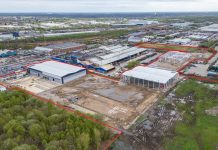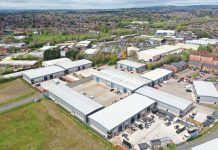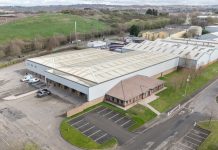Rapid urbanisation will mean HS2 is essential for Birmingham if it is to stay competitive suggests a new report from JLL, identifying the “Big Eight’ megatrends which will impact on UK real estate in the next 15 years.
As 82% of the population heads for the cities by 2030, urbanisation will put a huge pressures on infrastructure and high-speed, low carbon railways such as HS2 will be essential and a massive public and private investment opportunity.
Birmingham’s population is set to grow 202,700 by 2030 based on 2010 projections – a percentage growth of 19.6%, higher than the national English average of 15.7%.
“Infrastructure and quality housing will be key factors determining our ability to attract and sustain these new urbanites, ” says Ian Cornock, lead director of JLL in Birmingham.
“A shortage of residential housing supply in London is already threatening its economic success. 2014 saw 22,000 adults in their thirties head out of the city. Expensive, poor quality housing does not draw talent and it’s unlikely that affordability will continue to drive working professionals away and further out of the city. Birmingham will be a natural destination.
“There will be huge opportunities for commuter villages through to multi-modal logistic hubs as HS2 and others like it materialises.”
JLL’s report urges businesses to adapt to these major transformative trends to stay competitive.
Analysing a total of 40 themes, JLL’s Upstream Sustainability Services team arrived at eight interconnected sustainability trends, which are most critical to the UK property industry.
The ‘Big Eight’ trends are:
· The low carbon economy
· Technological innovation
· Urbanisation
· Land and resource scarcity
· Workforce transformation
· Changing demographics
· Health and wellness
· Transparency and social value
Ian Cornock added: “These megatrends are evolving at an unparalleled speed – ten times the pace of the industrial revolution with 3,000 times the impact. They are fundamentally changing the way we live and do business so companies must innovate ahead of anticipated changes and adapt so that they are at least robust, and at best flourishing, in the long term.
“The first movers will gain the most value and that’s why both businesses, Birmingham and the Greater West Midlands has to consider these factors if they are to succeed in the long term.”





















